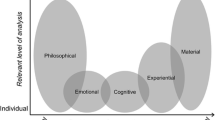Abstract
Marine aquaria claim that they help to elevate the current low profile of marine conservation through public education. The effectiveness of aquaria as centres for marine conservation education was assessed using social survey techniques, at three large commercial aquaria in the south-west of England. The aquaria managers did not believe that most visitors were interested in receiving educational information, in particular on conservation topics. Textual analysis revealed that aquaria's interpretative material contained very few references to conservation and portrayed a distorted image of the marine environment. The feedback from the questionnaires revealed no evidence for an increase in visitors' sympathy towards and understanding of marine conservation following a visit to an aquarium. The majority of visitors wanted public aquaria to increase their levels of interpretation. In particular, visitors wanted more information on conservation and how they, as individuals , could contribute to preserving the marine environment. As well as benefiting conservation, increasing the educational impact of aquaria could have significant commercial advantages, e.g. increased visitor satisfaction and numbers. Suggestions on how these mutual benefits could be achieved are briefly outlined. Their success will depend on the degree of cooperation which can be forged between commercial aquaria and conservationists
Similar content being viewed by others
REFERENCES
Bucke, D. (1993) Aquatic pollution-effects on the health of fish and shellfish. Parasitology 106S, 25–37.
Caro, T.M., Pelkey, N. and Grigione, M. (1994) Effects of conservation biology education on attitudes towards nature. Conservation Biology 8(3), 846–852.
Carson, R. (1962) Silent Spring. London, Houghton Miffin.
Denzin, N.K. and Lincoln, Y.S. (1994) Handbook of Qualitative Research. London: Sage Publications.
Fink, A. and Kosecoff, J. (1985) How to Conduct Surveys. London: Sage.
Gabric, A.J. and Bell, P.R.F. (1993) Review of the effects of non-point nutrient loading on coastal ecosystems. Australian Journal of Marine and Freshwater Research 44, 261–283.
Gislasson, H. (1995) Ecosystem effects of fishing in the North Sea. Marine Pollution Bulletin 29, 520–527.
Lea-Wilson, D. (1994) The role of marine aquaria in marine education. In McGregor-Reid, G. and Whitear, J., eds, 1994 Report of the Fish and Aquatic Invertebrate Taxon Advisory Group. Chester, North of England Zoological Society.
McCormickray, M.G. (1993) Aquarium science, the subject behind an image, commentary. Zoo Biology 12(5), 413–424.
Oppenheim, A.N. (1992) Questionnaire Design, Interviewing and Attitude Measurement, 2nd edn. London: Pinter Publishers.
Orr, D.W. (1990) The virtue of conservation education. Conservation Biology 4(3), 219–220.
Pauly, D. and Christensen, V. (1995) Primary production required to sustain global fisheries. Nature 374, 255–257.
Price, E.C., Ashmore, L.A. and McGivern, A.M. (1994) Reactions of zoo visitors to free range monkeys. Zoo Biology 13(4), 355–373.
Seed, R. and Suchanek, T.H. (1992) Population and community ecology of Mytilus. In Gosling, E., ed., The Mussel Mytilus: Ecology, Physiology, Genetics and Culture. London: Elsevier, pp. 87–169.
Siegel, S. and Castellan, N.J. (1988) Nonparametric Statistics for the Behavioural Sciences, Singapore, 2nd edn. McGraw-Hill.
Whitbread, T. (1997)A downland tale of conservation versus the super subsidies. British Wildlife 8(5), 330–333.
Author information
Authors and Affiliations
Rights and permissions
About this article
Cite this article
Evans, K. Aquaria and marine environmental education. Aquarium Sciences and Conservation 1, 239–250 (1997). https://doi.org/10.1023/A:1018312407357
Issue Date:
DOI: https://doi.org/10.1023/A:1018312407357




